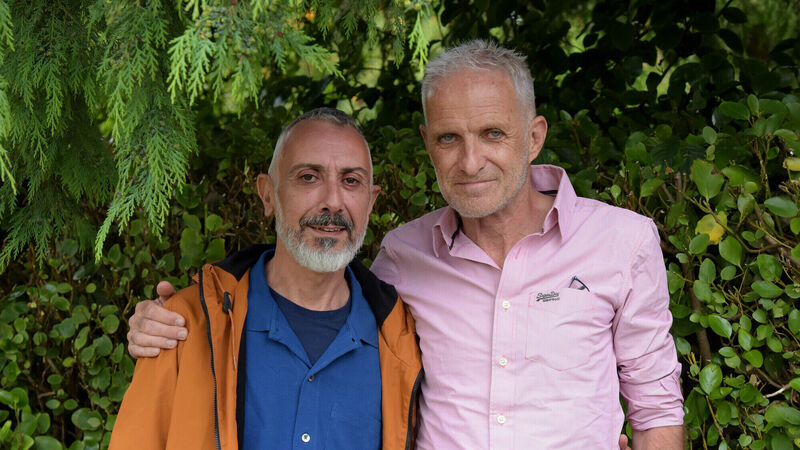'I shared a cell with rapists and paedophiles': Bernard Phelan on his time in Iranian prison

Bernard Phelan (right) with his husband Roland Bonello. After his release from prison in Iran, Bernard returned to his home of 30 years in Paris with his husband. Bernard says his husband is angry about what happened. Photo: Moya Nolan
It was only when the pilot announced that the plane had left Iranian air space that Bernard Phelan finally knew he was a free man and was able to break down in tears.
During the previous seven months Bernard had spent in the freezing prison in Central prison Mashhad in Iran on spying charges, freedom had seemed an unlikely dream. There had been many false dawns during the 222 days he had spent in captivity.











